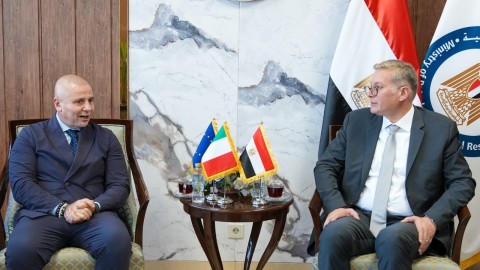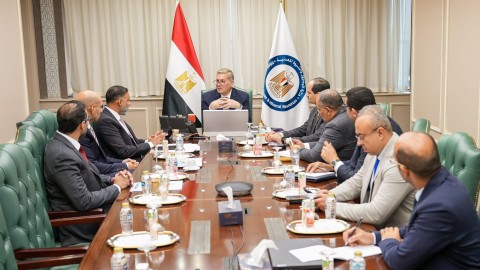Beneath the sands of Egypt lies a treasure trove of untapped potential. Rich in diverse mineral resources, from gold and phosphate to iron ore and beyond, the nation’s mining sector holds the promise of significant economic benefits. Job creation, increased export revenue, and a boost to industrial development are just a few of the potential rewards of a thriving mining industry. However, despite this potential, the sector faces a number of challenges that have hindered its full growth. Yet, the new Minister’s vision for reform includes key plans and initiatives designed to propel the sector forward.
The Untapped Potential of Egyptian Mines
Boasting a rich tapestry of mineral resources, Egypt possesses the potential to significantly revitalize its economy. These resources can be broadly categorized into three groups: energy raw materials like coal and radioactive materials, metallic ores including iron and copper alongside precious metals, and finally, non-metallic ores encompassing gemstones and semi-precious stones.
Eyeing a place among the world’s top mining destinations, Egypt boasts impressive reserves: 6.7 million ounces of gold, 48 million tons of tantalum which is valuable for laboratory equipment and computers (ranking fourth globally), and 50 million tons of coal, which plays a significant role in energy security. To unlock this wealth and diversify the economy, the country aims to increase the mining sector’s contribution to GDP tenfold by 2026. This ambitious plan hinges on transforming the sector into a magnet for lucrative investments.
Egypt’s Mining Sector: From Stagnation to Transformation
Despite vast reserves of gold, tantalum, and coal, Egypt’s mining sector lacked a globally competitive policy. Previously modeled after the oil industry, it didn’t align with the investment needs and production cycles of mining. To address this and attract foreign direct investment (FDI), the government enacted a new Mineral Resources Law (No. 198 of 2014), followed by Executive Regulations (No. 108 of 2020) in January 2020. These reforms aim to shift the sector towards a framework better suited to mining, particularly regarding taxes, rents, and royalties, according to the British Egyptian Business Association (BEBA).
Investors also identified limited information access as a hurdle. Providing comprehensive and free electronic data on the mining sector would save them time and money on additional research and studies, according to BEBA. Hence, the Egyptian Ministry of Petroleum and Mineral Resources (MoPMR) introduced the mining investment portal. This central platform aims to connect stakeholders, streamline processes, and unlock a wealth of investment opportunities. For investors, the portal will be a game-changer, offering real-time data transparency and accessibility. They will have vital information at their fingertips, including details on mineral reserves, exploration projects, and market trends.
The New Vision for Reform
The mineral resources sector in Egypt has a vision to work on developing the performance of the mining sector, exploiting the diverse mining wealth in Egypt, and expanding extractive industries. During his opening speech in the Egyptian Mining Forum (EMF), Minister of Petroleum and Mineral Resources, Karim Badawi, stated that “currently the gold production in Egypt reached around 560,000 ounces, and we are planning for this to reach around 80,000 by 2030. Meanwhile, the production of mineral ores in 2023/24 is around 17.5 million tons, and we plan to reach 30 million by 2030.”
This comes as the MoPMR eyes increasing the role the mineral industry plays in the economy. Badawi highlighted during the EMF that Egypt has “leveraged external support from Wood Mackenzie to be able to learn from the international best practices of what can be done and what needs to be done” to have the mining sector contribute at least 5% of the country’s gross national product (GNP), compared to the 1% it contributes now.
Egypt stands at a precipice of economic transformation, with its vast mineral wealth poised to be a cornerstone. The nation’s geological bounty, encompassing gold, tantalum, and coal, among others, presents an unparalleled opportunity to diversify the economy. However, realizing this potential requires a strategic, comprehensive approach. The recent overhaul of the mining sector, marked by digital transformation, is a crucial step in the right direction.








